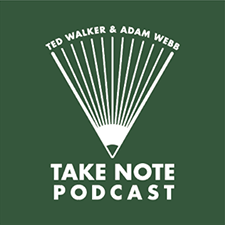Farm system

“[Branch] Rickey, in old khaki trousers, soiled tennis shoes, a sports shirt that reveals the full extent of his circumference at the waist, a dissolute white duck hat, which he pulls down to his ears, giving his face a particularly malignant expression, is one of the more spectacular, if dilapidated, fixtures of the [Dodgers’] Vero Beach camp.” - New Yorker, May 1950
Branch Rickey is one of those baseball figures so iconic that it’s hard to see the person. Well, Robert Rice’s New Yorker profile of Rickey from May of 1950 (paywall), reveals that even an astute contemporary account spends much of its time trying to make sense of the dynamo. Rickey moves at a pace that seems inconceivable to those of us who like a little Netflix after we put the kids to bed.
Rickey’s son goes on for a whole New Yorker page about a weekend with his father spent jumping on trains, meeting people in one city before racing to the next, simultaneously scouting players and assessing hot dog sales tactics, demanding his son take notes on both in the taxi on their way to the next city. I would truly watch a whole movie about this weekend before I watch the boring if beautifully costumed 42.
I am at the beginning of Empire of Pain, in which Patrick Radden Keefe is outlining the early career of pill impresario (I presume at least) Arthur Sackler. I don’t even know yet where the story is going (it’s cringe-inducing to think of the human tragedy that will unfold), but I noticed a similarity between Sackler and Branch Rickey. Both were insatiable in pursuit of their goals and their range of symbiotic but boundary-breaking activities that are so broad-ranging and super specific that most humans will tire just reading about it. Where Rickey chased talent across the country, Sackler was a doctor, a researcher, and an ad man all at once who started a relationship with his second wife while still married with two kids and may have invented pharmaceutical advertising.
Austin Kleon’s discussion of farmers vs. pirates resonates here. “I would like to be a pirate gardener,” says Kleon, intimating at the combination of cultivator and boundary-buster. Rickey was a great farmer of baseball talent, he literally invented the “farm system.” Yet he was a pirate of the rails and the air, always blasting forth to the next place, creating new paradigms of thought in his pursuit of pennants. Sackler, too, planted seeds that would transform industries and economies without ever sitting still.
When pondering my own activities, I realized that Adam and I have done a good bit of gardening ourselves with this Take Note business. 175 episodes of conversation, creativity, reading, writing, sharing. A sustained effort over time, marked not by over-exertion (don’t tell!) but by consistency. To see people enjoy this and join in some way, through just listening, or weighing in by email, or through support…it’s like biting into a carrot harvested from your own back yard.
As Kleon points out, writers often live a kind of double life: farmers in the world, pirates in their minds. In a previous Take Note blog post on writers and their notebooks, Mieko Kawakami even goes so far as to use notebooks decorated, oh so garden-like, in flowers: “‘I do all my writing work in a little, solid block of time, then take care of the housework, and then go back over the day’s writing on my phone and make notes for revisions before I go to sleep.’ She keeps assorted notebooks to hand, decorated with delicate flowers. The next day starts with working those revisions in.” Her office is “filled with plush velvet curtains, frilly pink cushions and rugs, and vase upon vase of fresh peonies; even her side table is whimsically petal-shaped.”
email us at takenotecentral@gmail.com




